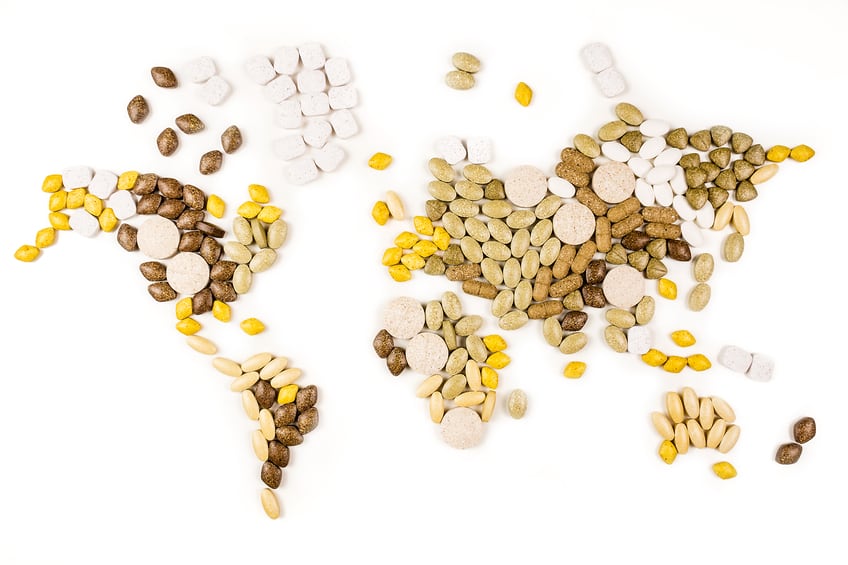The report published this week in Nature Sustainability provides an analysis of the trajectory of diets from now until 2050 and shows that widespread inadequacies in calcium, vitamin D, vitamin E and folate are likely to continue.
Consumption adequacy of vitamins and minerals show large variability between countries. At one extreme are those micronutrients which see adequate consumption across all countries: magnesium and phosphorus and niacin, ribofla-vin, thiamin, vitamin B6 and vitamin C.
At the other extreme are micronutrients lacking in all regions: calcium and vitamin D.
Calcium adequacy increases steadily from lower to higher income countries, consistent with increasing availability of dairy foods.
The projection shows there will be continued inadequacies in iron, zinc, and vitamins A and K for the poorest countries in the world.
The study found that while micronutrients are lacking, nearly all countries in the world have more than adequate carbohydrate and protein available.
In many high-income countries, over-consumption is a concern, with diets above the recommended intake for alcohol, saturated fat and added sugar.
The biggest factors affecting food and nutrition security in the future, according to this new research, are climate change, increasing incomes and evolving diets.
CSIRO Nutrition Systems Scientist Dr Jessica Bogard, one of the authors of the study, said a change in the climate combined with a change in people's diets, as they begin to earn more, will ultimately impact on our agricultural systems and what gets grown where.
However, she points out that improving farm productivity and economic growth alone is not going to be enough to achieve nutritional security now and into the future, adding that “we must refocus our efforts on dietary quality rather than quantity".
In all countries, the authors recommend better aligning agriculture with nutritional needs by investing in the availability and affordability of nutrient-rich foods, including vegetables, fruits, pulses, nuts and seeds.
In many developing countries this must also include a focus on nutritious animal-source foods. Complementary interventions throughout the food system such as reduced waste, and efforts to promote healthy food environments will also be needed.
Calcium
Calcium is best known for its importance for bone health and strength, particularly when taken in conjunction with vitamin D. But it has also been found to reduce breast cancer rates
Calcium has also been found to improve cholesterol in postmenopausal women when taken with vitamin D.
Vitamin D
The sunshine vitamin is important for bone strength, energy capacity, muscle strength, immune function and mood.
Supplementation of vitamin D has been found to have potential to reduce the risk of infants being small for gestational age and improve growth during infancy.
It may even reduce the risk of heart failure in older individuals.
Yet it is difficult to attain adequate amounts of vitamin D through diet alone - most people only get about 10% of their RDA through food and need to get the other 90% via sunshine. Studies have shown that the best way to achieve adequate vitamin D intake is with supplements.
German startup Doctor Chococo has tapped into the worldwide need for vitamin D with its supplemented chocolate bars and drinks.
Source: Nature Sustainability
"Income growth and climate change effects on global nutrition security to mid-century"
Published online 14th December 2018 https://doi.org/10.1038/s41893-018-0192-z
Authors: Nelson.G.C et al

